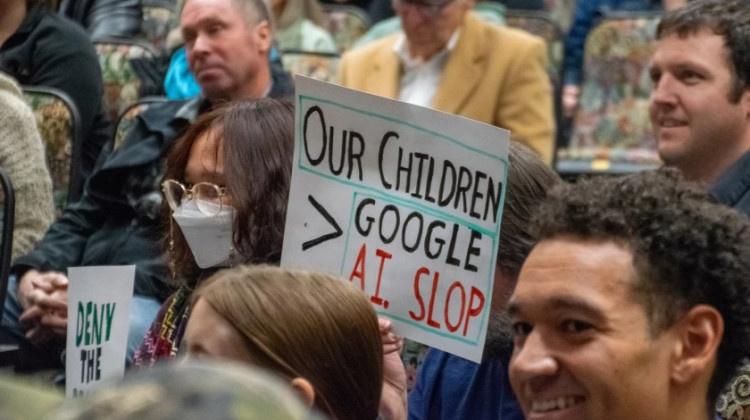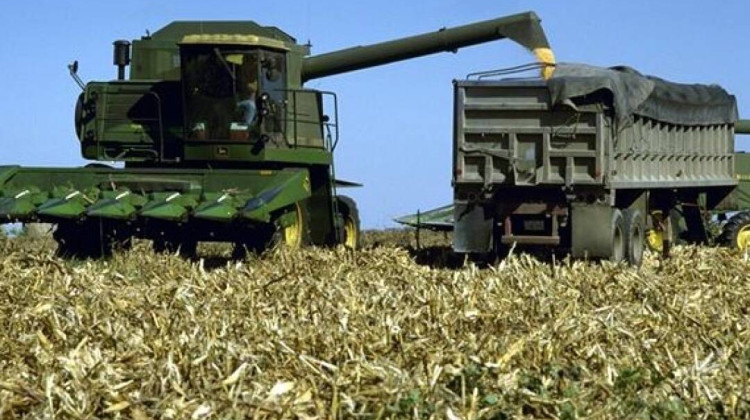
Billy McCall (right), a veteran employee of U.S. Steel's Gary Works mill, was in Washington this week to lobby members of Congress.
Courtesy of Alliance for American ManufacturingSteelworkers from around the country were in D.C. this week to ask Congress to strengthen its support for the domestic steel industry.
Among them was Billy McCall, who’s worked at U.S. Steel’s huge Gary Works mill for more than 20 years.
He and other United Steelworkers union members talked with federal representatives this week about an ongoing trade investigation into the effect of excess Chinese steel imports on national security.
McCall says that’s about not just defense, but infrastructure and people.
“If we don’t have a strong manufacturing base, we don’t have a strong middle class, and our national security and defense is weak,” he says.
McCall says he sees competition from cheap imports as a bigger threat to steel jobs than automation.
He says fewer sales mean steel companies don’t hire as many new workers when old ones retire, causing industrial communities to shrink.
“Maybe they plan on hiring more, but if we don’t have promise of through-put, then that’s not going to happen,” McCall says.
The International Trade Commission has imposed some penalties on China and other producers for their export practices, but the defense case is still open.
Meanwhile, steel imports are on the rise again, more quickly than domestic production or demand.
 DONATE
DONATE








 Support WFYI. We can't do it without you.
Support WFYI. We can't do it without you.